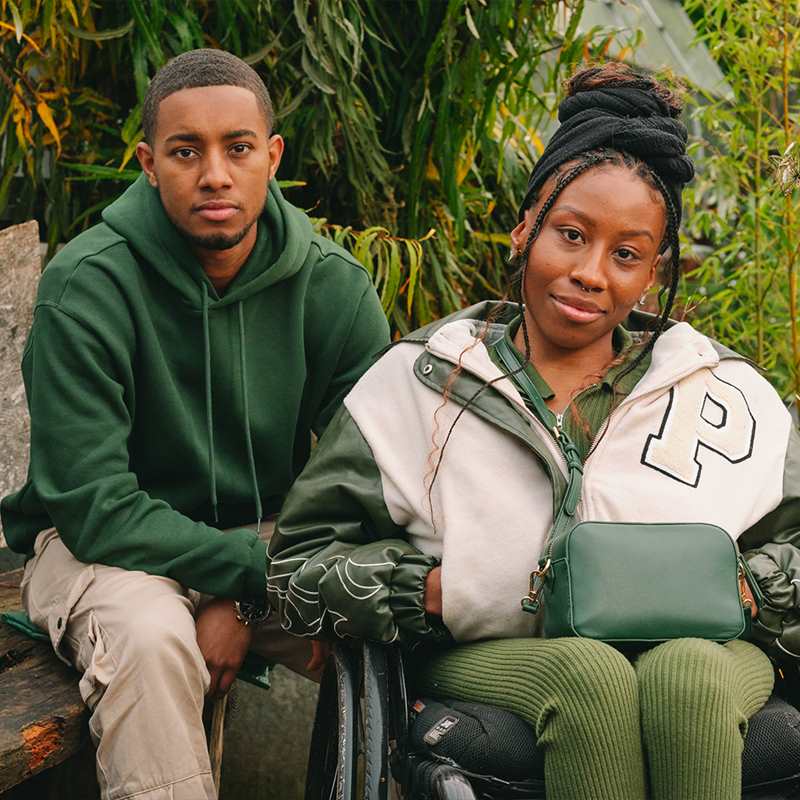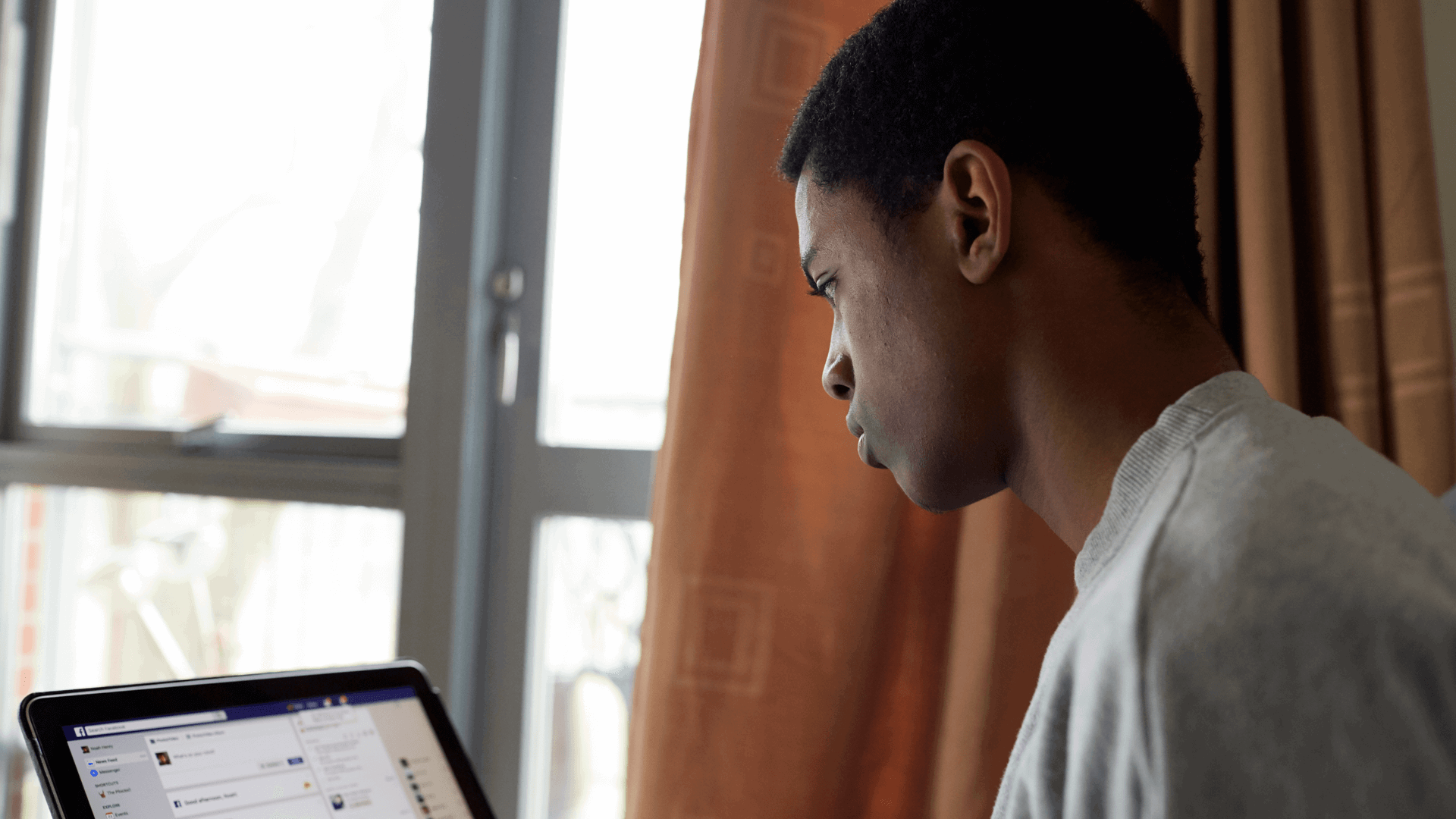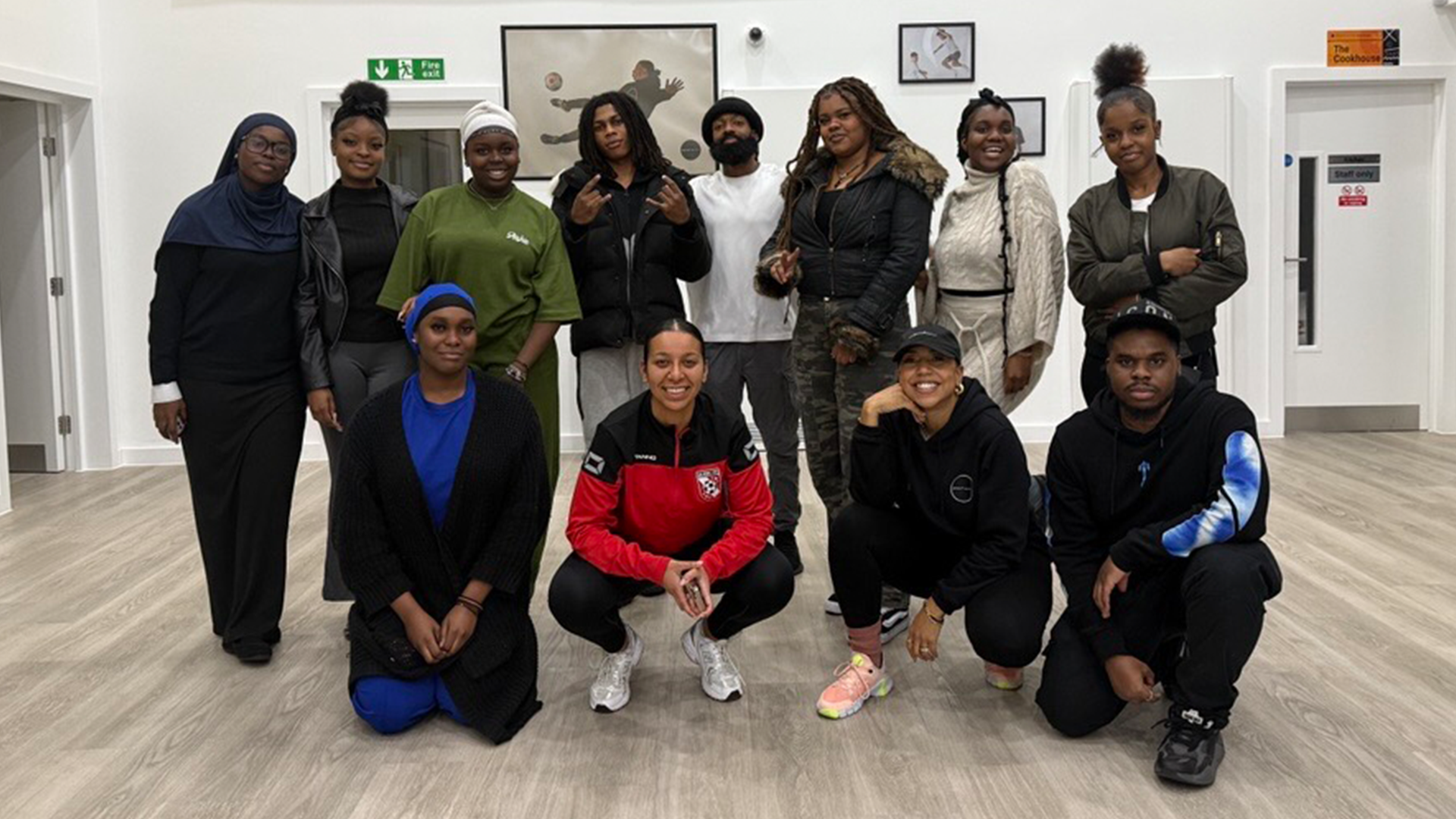It’s not your responsibility to fix racism.
Don’t pressure yourself to solve this problem alone. We all have a responsibility to change our behaviour and support the rights of Black and ethnic minority groups.
Racism is when you’re treated unfairly or differently because of your race, skin colour or ethnicity. This is never okay.
Racism can happen anywhere. Like at school, work, or home, online or offline, or even within families and relationships. Sometimes racist abuse is obvious, like nasty comments about the way you look, stereotyping how you behave, or bullying. But sometimes it’s harder for people to notice because it’s part of the structures and systems that we live in.
It’s not always clear if you’re experiencing racism or if it’s something else. This can make you feel foolish for speaking up, especially if others haven’t had to experience what you’re going through. Sometimes, people might tell you you’re wrong, even if you’re sure what you’ve faced is racism. This can feel very lonely.
But what matters is how you see the situation and how it makes you feel.
It’s also valid if racism is ‘indirectly’ affecting your mental health. Sometimes the things going on around us, to people just like us, can feel personal or like your life doesn’t matter.
Whatever you’re going through, there is help out there and we’re here to help you find it.

Your experiences of being treated differently because of your skin colour, race or ethnicity can cause constant fear or anxiety. You might start avoiding things that other people just do without thinking about.
For example, you might avoid:
Racism and discrimination are never okay and you deserve to feel proud of who you are. If you’re experiencing any of these, our tips below can help.
Although race and religion are different things, they often overlap, making it hard to separate these parts of your identity. This means you can experience religious discrimination alongside racism.
Examples of religious discrimination might include:
Your religion is personal and being treated unfairly because of it can be very distressing. But religious discrimination is never okay, and you should never have to hide who you are.
For more advice on religious discrimination and your rights, visit Citizens Advice. We also have information and advice in our guides.
Here’s what you can do if racism is affecting your mental health.
Find someone you trust, like a family member, faith leader or friend, and talk to them about how you’re feeling. Opening up is the first step to getting support. It can be tough to talk about your experiences, so take your time and only share what you want. If talking to your family is hard, there are other people you can reach out to.
Talking to someone who shares your race, ethnicity or religion can help. The Black, African and Asian Therapy Network has a directory of specialist Black and minority ethnic counsellors or therapists you can talk to.
You should speak to your GP if you:
If you’re nervous to talk to your GP, DocReady has tips on having challenging conversations, so you know what to expect and can plan what you're going to say. We also have more advice in our guide.
It can be hard to explain your feelings to someone who hasn’t experienced racism. Finding groups and communities that understand what you’re going through can help. Online communities can be a safe space for you to connect with people who share similar experiences. Bayo can help you find organisations and services that offer mental health support to the Black community.
Joining an anti-racist movement or organisation can help you feel empowered and give you a sense of hope. There are many anti-racist movements and organisations fighting for change, like Black Lives Matter UK or The UBELE Initiative.
What you see online can affect your mental health. Try unfollowing or blocking accounts and muting words that upset you. All social media platforms have ways you can report abusive behaviour. If social media is still having an impact on your mental health, try taking a break from it.
Don’t pressure yourself to solve this problem alone. We all have a responsibility to change our behaviour and support the rights of Black and ethnic minority groups.

A hate crime is any crime motivated by hostility or prejudice towards someone because of their race or ethnicity.
Anyone can report a hate crime, whether you’re the victim, a witness, or someone the victim has told.
You can report a hate crime online through the True Vision website.
If you’re experiencing racism online, reporting it is perfectly reasonable and the right thing to do because racial discrimination is illegal.
If you think a mental health professional is being racist, you have the right to make a complaint about their behaviour. Every NHS service provider (like your GP or hospital) has a complaints procedure. You can find information about making complaints on your service provider’s website, in waiting rooms, or by asking a staff member.
You can choose to complain to the NHS service provider directly, or to the commissioner of the services, which is the body that pays for the NHS services you use.
You can make a complaint verbally, in writing, or by email.
Once you’ve made a complaint, you should get an acknowledgement and be offered a discussion about the handling of your complaint within three working days.

Amplifying Black young voices
From Trauma to Triumph is the result of the Creators Programme, a collaboration between Mentivity and YoungMinds. Through workshops and honest conversations, young Black people explored issues like intergenerational trauma, societal perceptions, systemic injustice, and knife crime. They used collage, audio, and photography to bring their work to life.
If you’re experiencing racism and it’s having an impact on your mental health, these organisations and helpline services can help.
Connects Black individuals and families with free professional mental health services across the UK.
Provides advice, and mental health and practical support to asylum seekers across the UK.
Webchat service available during opening hours.
Offers tailored support services and online counselling for children and young people aged 11-25 whose lives have been impacted by mental illness in the Jewish community.
View their weekly peer support groups that take place in London and online.
Explore their free support services for children and young people.
Offers a free listening service for Jewish people over the age of 18. You can discuss any worries or concerns, including social, financial, religious or personal issues.
Provides faith and culturally sensitive support for young Muslims.
Online chat service available during opening hours.
A confidential and independent helpline for anyone experiencing Hate Crime and discrimination. You can use the helpline to report incidents and get help and support. The helpline is open 24/7 and is reachable by phone, text or email.
Please note that this service is only available in some parts of the UK. Please use their form to check whether you can use the helpline in your area.
Measuring Anti-Muslim Attacks (MAMA) is a secure and reliable service that supports victims of anti-Muslim hate, and allows people from across England to report any form of Anti-Muslim abuse.
Whether you love the page or think something is missing, we appreciate your feedback. It all helps us to support more young people with their mental health.
Please be aware that this form isn’t a mental health support service. If you are in crisis right now and want to talk to someone urgently, find out who to contact on our urgent help page.
At YoungMinds we take your privacy seriously. If you’d like to read more about how we keep the information we collect safe, take a look at our privacy policy.